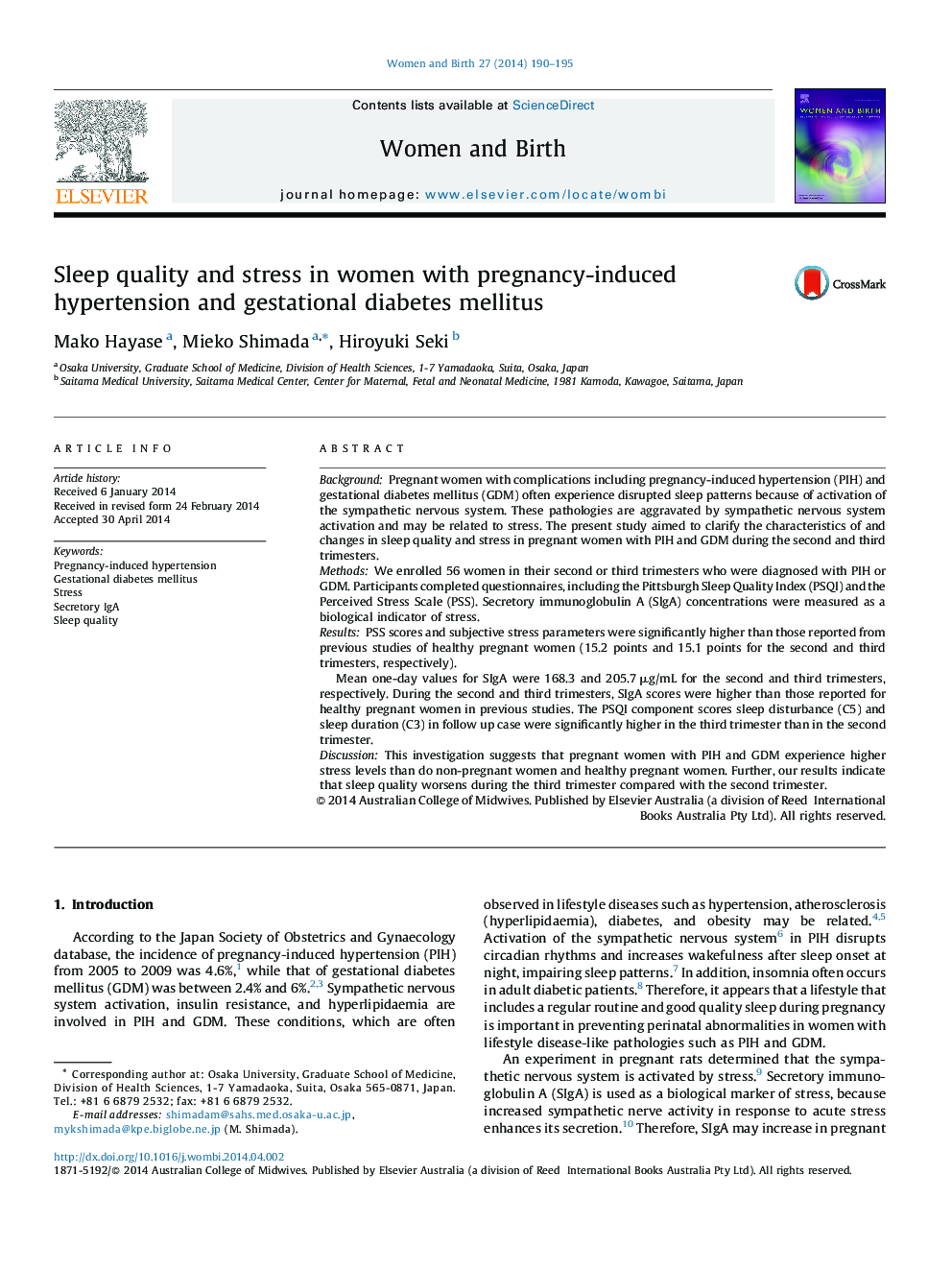| Article ID | Journal | Published Year | Pages | File Type |
|---|---|---|---|---|
| 2635959 | Women and Birth | 2014 | 6 Pages |
BackgroundPregnant women with complications including pregnancy-induced hypertension (PIH) and gestational diabetes mellitus (GDM) often experience disrupted sleep patterns because of activation of the sympathetic nervous system. These pathologies are aggravated by sympathetic nervous system activation and may be related to stress. The present study aimed to clarify the characteristics of and changes in sleep quality and stress in pregnant women with PIH and GDM during the second and third trimesters.MethodsWe enrolled 56 women in their second or third trimesters who were diagnosed with PIH or GDM. Participants completed questionnaires, including the Pittsburgh Sleep Quality Index (PSQI) and the Perceived Stress Scale (PSS). Secretory immunoglobulin A (SlgA) concentrations were measured as a biological indicator of stress.ResultsPSS scores and subjective stress parameters were significantly higher than those reported from previous studies of healthy pregnant women (15.2 points and 15.1 points for the second and third trimesters, respectively).Mean one-day values for SIgA were 168.3 and 205.7 μg/mL for the second and third trimesters, respectively. During the second and third trimesters, SIgA scores were higher than those reported for healthy pregnant women in previous studies. The PSQI component scores sleep disturbance (C5) and sleep duration (C3) in follow up case were significantly higher in the third trimester than in the second trimester.DiscussionThis investigation suggests that pregnant women with PIH and GDM experience higher stress levels than do non-pregnant women and healthy pregnant women. Further, our results indicate that sleep quality worsens during the third trimester compared with the second trimester.
